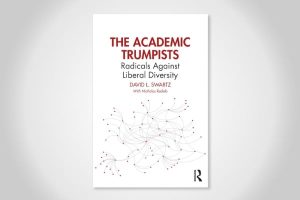A group of professors at a prestigious university in the United States are making headlines for their decision to disassociate themselves from their union, citing concerns over what they describe as antisemitic behavior and rhetoric within the organization.
The professors, who are part of a diverse range of academic disciplines, have raised alarm over what they perceive as a growing trend of antisemitism within the union. They claim that certain members of the union leadership have made derogatory comments about Jewish people and have expressed support for anti-Israel sentiments.
In a joint statement issued by the group of professors, they explained their decision to sever ties with the union, stating that they could no longer support an organization that promotes hate speech and discrimination. They emphasized that academic freedom and tolerance should be fundamental values upheld by any professional organization, and that they could not in good conscience continue to be affiliated with a group that goes against these principles.
The professors have since sought alternative forms of representation, either through other academic unions or through independent advocacy groups. They have also called for a thorough investigation into the allegations of antisemitism within the union, urging other members to speak out against hate speech and discrimination.
This latest development sheds light on the complex intersection of academic freedom, union representation, and ethical standards within academia. It raises important questions about how academic institutions can effectively address issues of intolerance and discrimination within their ranks, and how individuals can assert their values and beliefs in the face of such challenges.
As the debate over antisemitism and other forms of discrimination continues to be a contentious issue in academic and public discourse, it is clear that there is a pressing need for greater awareness and vigilance in upholding principles of equality, respect, and solidarity. The actions of these professors serve as a powerful reminder that standing up against hate and bigotry is a moral imperative that transcends professional affiliations and institutional loyalties.



